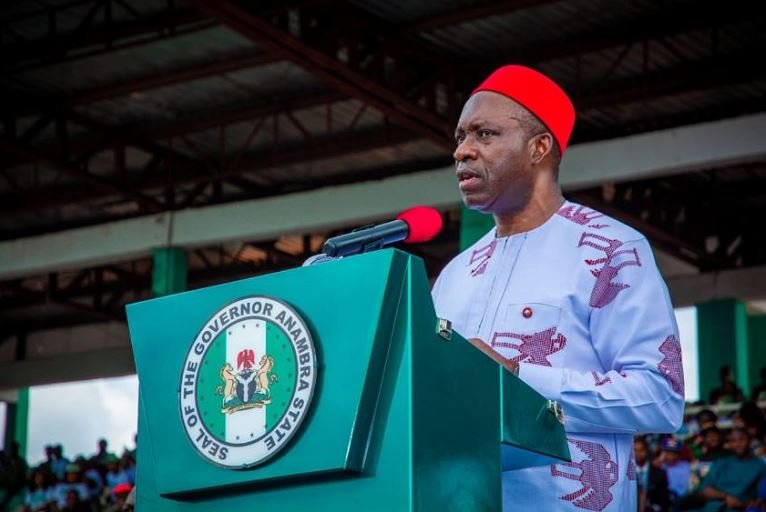The Executive Chairman of the Economic and Financial Crimes Commission (EFCC), Mr. Ola Olukoyede, has reiterated the Commission’s commitment to holding corrupt individuals accountable and ensuring that victims of fraud receive restitution.
Olukoyede made this known at a summit on asset recovery organized by the Ministry of Justice in Abuja on Tuesday, May 27, 2025.
The event, themed “Synergizing Towards an Effective Asset Recovery and Management and Unveiling of National Central Database of Forfeited Assets and Proceeds of Crime (POCA) Regulations 2024,” brought together key players in Nigeria’s anti-corruption efforts.
Olukoyede, represented by the Director of Proceeds of Crime Management, G.K Latona, said, “At the EFCC, our experience with asset tracing, recovery and management is anchored on the philosophy that those who obtained wealth through corrupt means must be held accountable and that victims of graft get justice through restitution. In an environment where legal barriers encumber speedy determination of corruption cases, the recovery and seizure of stolen wealth retain enormous deterrence value. The Commission, employing both conviction and non-conviction based strategies, yearly recover assets running into billions of Naira.”
Olukoyede hailed the unveiling of the National Central Database of Recovered Assets and the Proceeds of Crime (Standardised Assets Forfeiture Management System) Regulations, 2024, describing them as major milestones.
“Even more remarkable is the unveiling today of two key instruments that demonstrate the Attorney General of the Federation, AGF’s proper understanding of the gaps in the asset recovery efforts of the country’s anti-corruption agencies… I am also persuaded that the Proceeds of Crime Regulations, 2024 represents an audacious move to migrate from a chaotic analogue assets management system into a digitized mode for enhanced forfeited assets management,” he said.
Despite notable improvements, Olukoyede highlighted lingering challenges in the asset recovery process.
“There are, for instance, issues with the valuation and preservation of some assets. The assets disposal process also remained a source of constant attacks on the anti-corruption agencies despite clear legal provisions on the modalities for such engagements,” he noted.
Olukoyede emphasized the importance of inter-agency collaboration and support from various institutions and the public in achieving success in asset recovery, especially in the face of a fragmented national identity system.
“We cannot overstate the importance of synergy in asset tracking and recovery… The relationships are crucial in navigating the intricate web of legal and political mines that frustrate recovery of stolen wealth from foreign jurisdictions,” he said.
President Bola Ahmed Tinubu, represented by the Permanent Secretary, Political Affairs, Nadugu Gagare, also addressed participants at the summit, calling for unified action against corruption.
“Let me recognise the role of international and regional institutions, the judiciary and our anti-corruption agencies for their tireless work. This summit is a timely platform to foster our collaboration… We must act decisively with courage and unity of purpose to tackle corruption effectively and deprive criminals of the proceeds of their crimes,” he stated.
He assured Nigerians of his administration’s commitment to recovering looted assets and putting them to beneficial use.
“I would like to reassure you all that my administration is committed to aggressively pursuing the recovery of stolen assets… Our resolve as a government to fight corruption is unwavering and unshakeable,” Tinubu said.
Attorney-General of the Federation and Minister of Justice, Lateef Fagbemi, SAN, said the launch of the central database marked a new chapter in asset recovery and transparency in Nigeria.
“It is in furtherance of our commitment to transparency and accountability on the management of recovered and repatriated assets that the National Central Database on forfeited assets alongside the proceeds of crime standardized automated assets forfeiture management system regulations 2024 was developed,” Fagbemi said.
He urged anti-corruption stakeholders to collaborate and maintain momentum in the fight against corruption.
“We continue to urge you all to cooperate and collaborate in order to enhance our collective efforts towards depriving the criminals of the proceeds of their crime… Ensuring transparency and collaboration in asset management demand our collective attention and action,” he concluded.
Representatives from various local and international organizations, including the ICPC, NDLEA, NFIU, UNODC, ROLAC, ANEEJ, TUGAR, and diplomatic missions from the U.S., U.K., France, and Switzerland participated in the summit.










